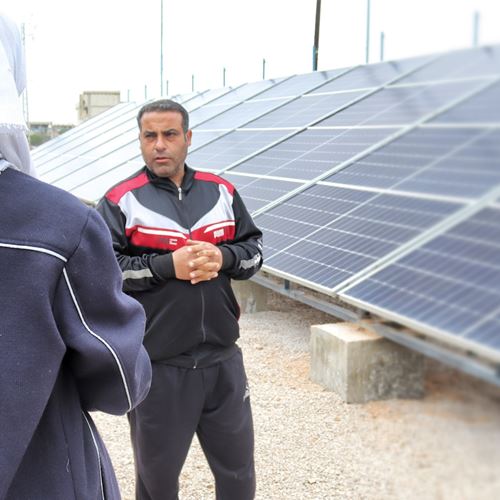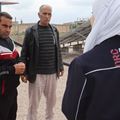News
Solar Streams: Transforming Water Access in Khirbit Ghazaleh Using Renewable Energy
In Khirbit Ghazaleh, the scarcity of water posed a severe challenge to daily life, until an initiative using solar power to pump water brought a wave of change.

In Khirbit Ghazaleh, like in many parts of Syria, the essential lifeline of water has become a scarce commodity.
"We rely on water for our food, our health, our livelihoods, our education, and our hygiene. Water is everything," Ahmad poignantly notes, encapsulating the critical role water plays in sustaining life.
The community faced a daunting challenge: a critical water shortage exacerbated by years of crisis, which left the water network and well equipment in ruins. Compounded by a lack of reliable energy sources to power the pumps, families like Ahmad's found themselves dependent on costly and unreliable water supplies, jeopardising their health and hygiene in the face of diseases like COVID-19 and cholera.
In response, the European Civil Protection and Humanitarian Aid Operations (ECHO) and the Danish Refugee Council (DRC) launched a transformative initiative in Daraa, Northwest Syria. By installing necessary equipment for a borehole, including environmentally friendly solar power systems, they ensured the provision of clean, safe drinking water to approximately 5,500 in Khirbit Ghazaleh.
This solar-powered solution marked a shift towards sustainable and reliable water access, directly addressing the community's water scarcity.

We rely on water for our food, our health, our livelihoods, our education, and our hygiene. Water is everything.
/ Ahmad
Ahmad's relief is evident as he shares, “We can now use the water for drinking, cooking, and washing without any concerns about its quality. With the constant flow of clean water, we can finally wash our hands regularly and maintain proper hygiene.”
This newfound access not only enhances the community's health and well-being but also alleviates the financial and temporal burdens of securing water. However, despite the significant progress, Mr. Ahmad underscores the ongoing need for innovative solutions to the challenges posed by the crisis and fuel scarcity.
He advocates for the prioritisation of renewable energy solutions for water management, particularly solar power, to sustain the wells and water facilities.
Such strategies promise to ensure uninterrupted access to clean water, reduce dependency on fluctuating fuel supplies, and mitigate the impacts of climate change.
The project in Khirbit Ghazaleh stands as a beacon of hope and resilience, demonstrating the power of community collaboration and innovative solutions in overcoming adversity.
By harnessing the potential of renewable energy, communities like Ahmad's can look forward to a future where water, the essence of life, is abundant and accessible for all.
<
18 Mar 2024
A Taste of Resilience: Fatma's Culinary Journey from Surviva…
>
16 Mar 2024
Rebuilding Hope for Bahaa's Family in Syria

